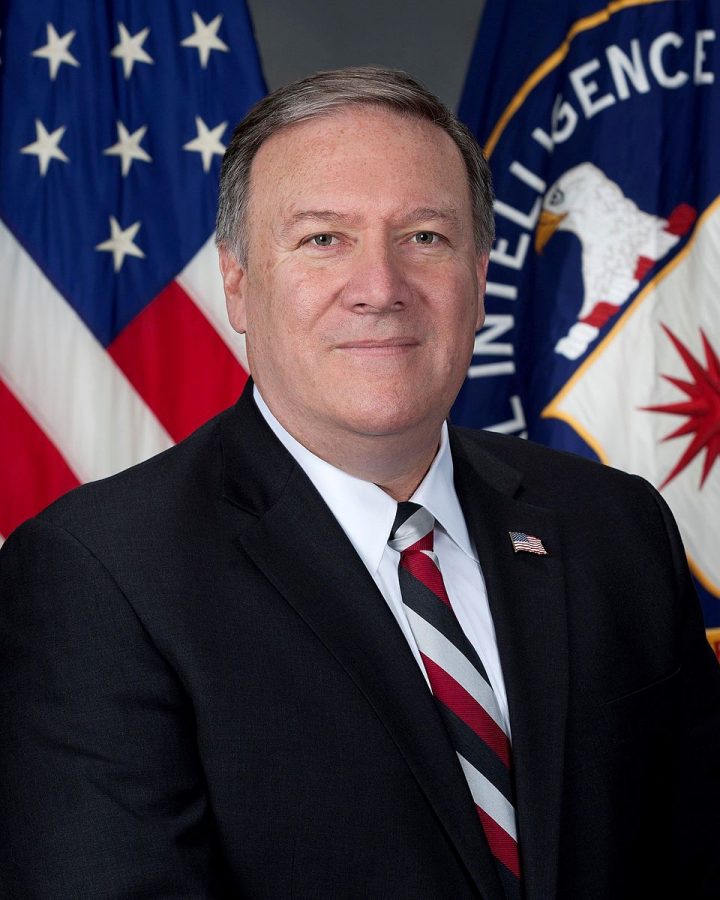In what has become a routine cabinet shake-up for President Donald Trump’s administration, Secretary of State Rex Tillerson was ousted and replaced by CIA Director Mike Pompeo last week.
While some have speculated on the cause of Tillerson’s firing, more attention should be directed toward the now-empty CIA director position.
The current favorite set to replace Pompeo is Deputy Director Gina Haspel. The announcement of Haspel’s ascension led to celebration in some circles, as she would be the first woman to head the agency. But Haspel’s connections with “enhanced interrogation” make her not worthy of celebration.
Celebrating women breaking new ground in professional fields is necessary. However, a line must be drawn determining what we are celebrating. “Enhanced interrogation,” or, more aptly named, torture, is both legally and morally wrong.
The post-9/11 landscape redefined how the United States fought wars, and the rise in torture on our prisoners associated with terror has been a mark of shame on this country for the past two decades. Regardless of who the subject is, torture is torture, and should not be abided by any administration or agency. Haspel has been linked to the destruction of video recordings of interrogations, which should raise more than enough red flags. Hassle also oversaw a CIA “black site” in Thailand where Al Qaeda detainees were interrogated using techniques later deemed torture.
Haspel’s name has been linked to the interrogation of Abu Zubaydah, a notorious instance of these so-called “enhanced interrogation” techniques. However, due to the classified nature of documents surrounding these events, many reports conflict with one another. But the aforementioned oversight of a “black site” as well as the alleged destruction of video recordings of interrogations should carry enough weight to cast doubt on the new proposed CIA director.
While some have celebrated this groundbreaking move for women in the intelligence community, Haspel’s links to torture should disqualify her from being hailed as a champion for the empowerment of women. To go even further, no person, regardless of sex, should be celebrated for their achievements in an organization so interlinked with torture.
This kind of accountability rises above gender and poses a more important standard we must hold our own government agencies to: human decency. Haspel’s career in the intelligence community is pockmarked with accusations like these.
The current deputy director’s selection as the upcoming director has drawn criticism from some Democrats, and even opposition from Republican Senator Rand Paul. Paul’s public statement of opposition cites Haspel’s role in the agency and her links to “enhanced interrogation.” This same scrutiny would — and rightfully should — be applied to any other candidate for the office of CIA director whether they be male or female.
Controversy and infighting in feminist and progressive circles have erupted since the announcement of Haspel’s selection for CIA director. Some publications are putting forward the idea that feminists should be celebrating the success of a woman in a field that has been monopolized by men. The role of CIA director is vital to the operation of the agency, and that role can be filled by anyone who is deemed fit and capable to do that job.
Representation is incredibly important, whether it is racial representation, gender equality or the empowerment of the LGBTQ community. However, the individuals who are being selected to represent these groups in high positions of power should be characters of great integrity, representative of the positive qualities of the people they are supposedly representing. This, at the very least, should include the basic respect of American and international laws surrounding human rights.
While Haspel’s nomination is technically groundbreaking, it should not be framed or interpreted as a success in the fight against the patriarchy. It should, however, be regarded as the willful and deliberate denial of our own intelligence communities’ role in the degradation and dehumanization of our prisoners.
Regardless of the ends or the subjects involved, torture is simply that: torture. It should not be excused, and its perpetrators should not be celebrated, regardless of the glass ceilings they may be smashing.






